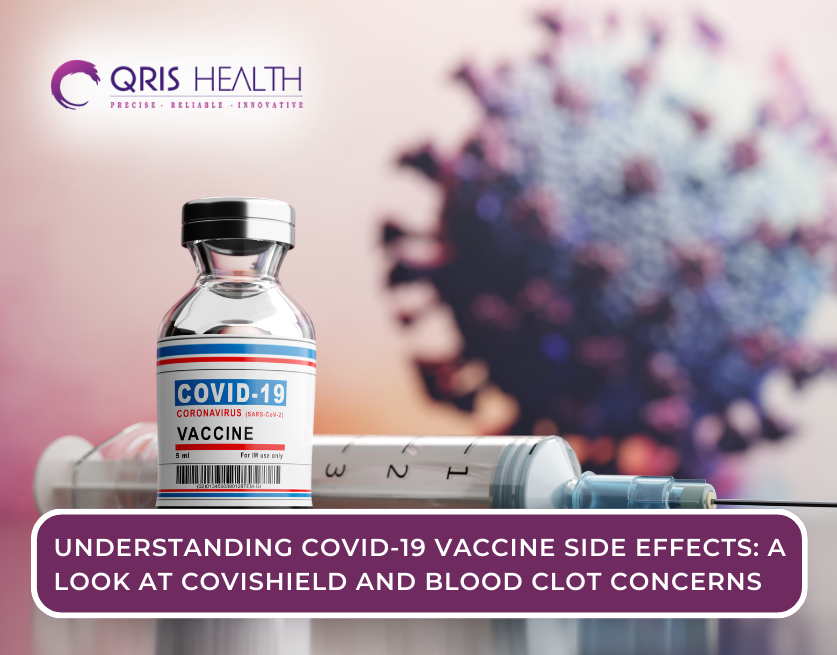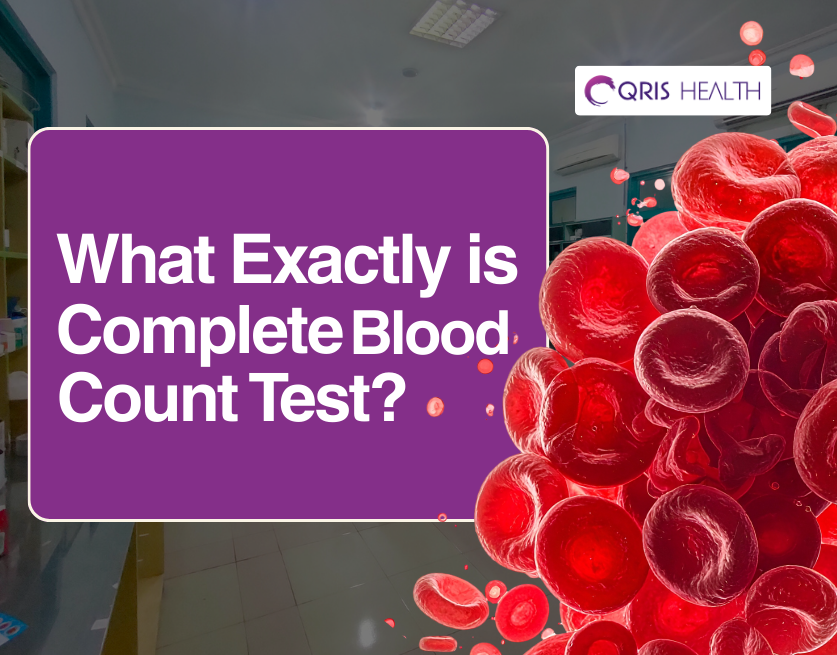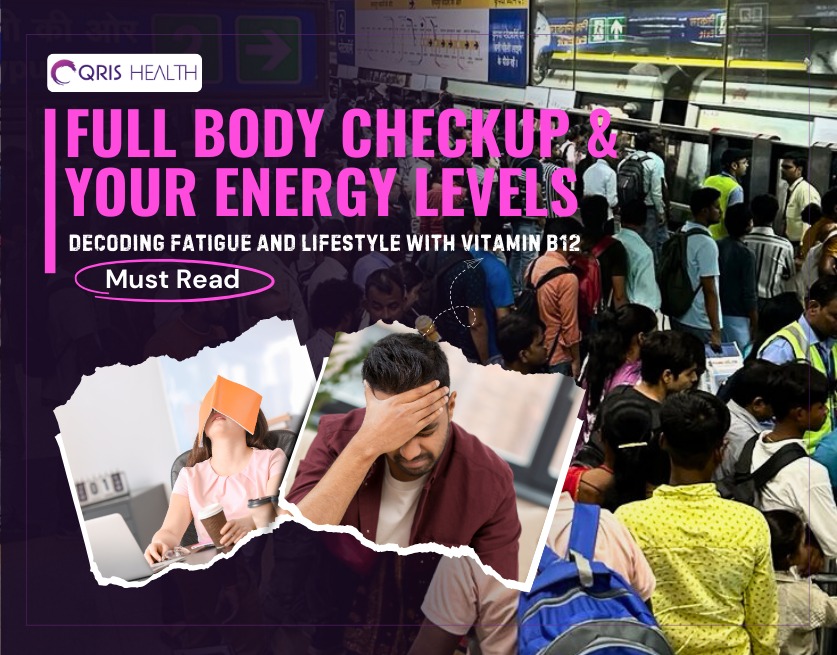The world has changed drastically following the arrival of COVID-19, which killed hundreds of thousands and infected millions. Vaccines are a huge help in fighting the coronavirus. They teach your body how to recognize and fight the virus, which means you're way less likely to get sick. But just like any medication, they can sometimes cause side effects. Nonetheless, only some people are completely convinced of their benefits; many are still sceptical of vaccination due to its potential side effects and dangers. Qris Health intends to ensure that readers are provided with information on the acquisition of vaccines and debunk vaccine men while also emphasizing the importance of routine check-ups in addition to vaccination.
In this blog, we're focusing on a vaccine called Covishield, which is popular in India. We'll talk about a specific side effect that some people have been worried about recently: blood clots.
Now, before we dive in, here are a few things to remember:
- Undergo a ton of tests to ensure they're safe and effective before giving them to people.
- The benefits of getting vaccinated against COVID-19 usually outweigh the risks for most people.
What do you need to know about blood clots and Covishield?
Covishield, which is the Indian version of the AstraZeneca vaccine, has been linked to a rare but serious side effect called Thrombosis with Thrombocytopenia Syndrome, or TTS for short. This means you might get blood clots in certain body parts, like your brain or belly. Blood clots aren't usually a big deal, but when they happen in the wrong places, they can be serious.
The chances of getting TTS from Covishield are pretty low, but it's still important to be aware of the symptoms:
- A really bad headache that just won't go away.
- Blurry vision.
- Trouble speaking or understanding what people are saying.
- Seizures.
- Pain in your belly that's severe.
- Trouble breathing.
- Swelling in one of your legs or pain in that leg.
If you experience any of these symptoms after getting the vaccine, don't ignore them! See a doctor right away. The sooner you get treatment, the better your chances of doing well.
How blood tests can help spot potential side effects
One of the ways doctors can keep an eye on your health after you've been vaccinated is by checking your blood. Here's how blood tests in Delhi can help:
- Platelet count: When you get a low platelet count, it means your body has fewer of those tiny blood cells that help form clots and stop bleeding. In TTS, your immune system attacks these platelets, making them decrease. A simple blood test can measure your platelet count and let your doctor know if there's an issue.
- D-dimer test: This test checks for blood clots in your body. D-dimer is a protein that's left over when a clot breaks apart. Elevated D-dimer levels can suggest a clot, but other things can cause it too. Doctors use this test along with other info to figure out if someone has TTS.
- Liver function test: This test looks for any problems with how your liver works. Your liver can be affected by some vaccines, but it's pretty rare. If it does happen, your liver enzymes might be a little off, and a liver function test can find that. Most of the time, these changes go back to normal on their own.
- Clotting profile: This test looks at different things in your blood that help it clot. It can help find any underlying clotting disorders that might raise your risk of TTS. The test looks at proteins like proteins C and S, which are important for regulating blood clotting. If these proteins are low, it can raise your risk of clots in general, and maybe even TTS.
So there you have it! Blood tests are one of the tools doctors use to make sure everything's okay after you've gotten a vaccine. If you have any concerns about side effects, talk to your doctor and they'll be able to help you figure out what's going on. Stay safe out there!
Qris Health: Your Partner in Good Health
Qris Health is a great option for diagnostic services, with a focus on advanced testing and specialist consultations. They make it super convenient with online booking and home sample collection. But to make the best decision, don't forget to do some research on their lab accreditation, check your insurance coverage, and talk to your doctor about your needs.
Schedule an Appointment with Qris Health Today!
Besides other precautions, Schedule an Appointment with Qris Health Today! Qris Health, your health and wellness are our priority. We take your check-up details and discuss your information and your decision to comply with the COVID-19 vaccine. Hurry and schedule your appointment with us to begin your health journey!


 Health Risks of Inactive Lifestyle.jpg)
 Health effects of smoking.jpg)


